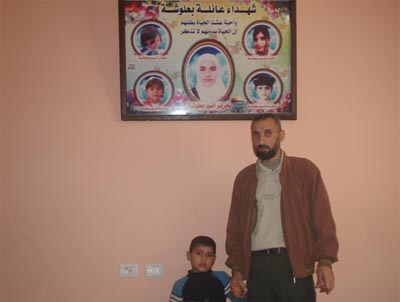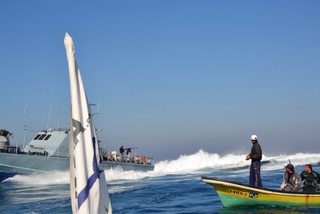Year: 2011
-
International Women’s Peace Service meet with prisoner released in Shalit deal
26 December 2011 | International Women’s Peace Service The 18th of December was a day of reunion and celebration for many in Palestine. Following a tense wait, several delays and tear-gas attacks by the Israeli Occupation Forces (IOF) on their waiting families, 550 Palestinian prisoners were released from Israeli jails to be reunited with their families…
-
29 December 2008: Balousha family
29 December 2011 | Palestinian Center for Human Rights “I miss them all the time, sometimes I even go to look for one of them in the house in the split second before I remember they were killed” At around 00:00 on the 29 December 2008 an Israeli aircraft attacked the Imad Akel Mosque situated…
-
Israeli navy attacks international observers, injures Palestinian, on monitoring boat in Gaza waters
28 December 2011 | Civil Peace Service Gaza At 10:55 am, an Israeli naval warship attacked the international observers and Palestinian captain of the Civil Peace Service Gaza (CPSGAZA) boat Oliva, injuring its captain in an apparent attempt to capsize it. “The Israeli navy passed near us and the fishermen, and started to go around…


